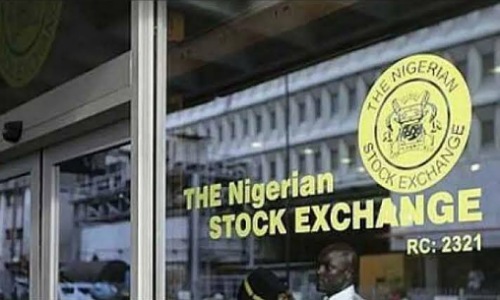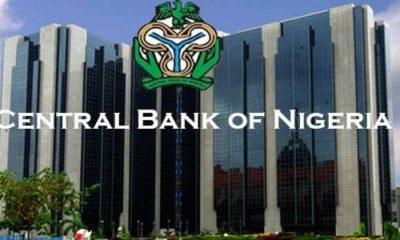Business
Nigerian Stock Market Wraps 2023 With A Stellar N13trn Investor Gain

In 2023, President Bola Tinubu’s reforms spurred a remarkable surge in the Nigerian stock market, with investors witnessing a staggering N13 trillion increase in returns.
Tinubu’s strategic policies, including the removal of fuel subsidies and the streamlining of foreign exchange rates, instilled robust confidence among investors, driving significant growth in fundamental stocks.
Despite facing double-digit inflation, the market’s capitalization closed the year at N40.918 trillion, a striking 46.6% leap from its 2022 closure at N27.91 trillion.
As a result, the Nigerian Exchange Limited All-Share Index (NGX ASI) soared to an unprecedented high of 74,773.77 basis points, marking an impressive Year-to-Date gain of 45.90% from its opening at 51,251.06 basis points for trading.
The addition of new listings significantly influenced the record-breaking trajectory of the NGX ASI, sustaining the stock market’s upward momentum.
Companies like MeCure Industries Plc, VFD Group, Nigeria Infrastructure Debt Fund (NIDF), and Africa Plus Partners notably contributed to the positive trajectory observed in the period.
In 2023, significant stock market indices responded to the market’s trend, influenced by the wide-reaching reforms impacting various sectors within the Exchange.
Specifically, the NGX Banking Index surged by 114.90% to reach 897.20 basis points, while the NGX Oil & Gas Index saw a robust increase of 125.54% to hit 1,043.06 basis points.
Additionally, the NGX Industrial Goods Index experienced a growth of 12.86% to reach 2,712.27 basis points.
Commenting on the 2023 stock market performance, Mr. Tajudeen Olayinka, the Chief Executive Officer of Wyoming Capital and Partners, remarked, “The market in 2023 was notably eventful and bullish.”
He said “We saw a market that picked its 2023 position way back in November 2022, when it was obvious that the three leading presidential candidates, namely: Asiwaju Bola Tinubu, Peter Obi and Alhaji Atiku Abubakar, that could succeed former President Muhammadu Buhari, were pro-market.
“And so, the build-up to the bullish run in 2023, that started in November 2022, was a demonstration of market confidence in a private sector-centric president.
“The inaugural speech of President Tinubu, with respect to fuel subsidy removal and exchange rate unification, eventually activated the market-wide pent-up confidence that had always been there but eluded the market ever since.
This market-wide confidence remained throughout the year.” he added
Mr. Tajudeen Olayinka expressed optimism for the Nigerian stock market in 2024, foreseeing a continuation of positive momentum.
Olayinka further stated “And we can draw that from 2024 budget proposal of President Tinubu, where total reliance has been placed on the use of private capital in funding some important developmental projects across the country.
“In a way, we are going to see more public companies get listed on the stock exchange for the purpose of raising new capital, while the existing listed companies will not be left behind in this development.
“So, I see a very bullish and active primary market in 2024, even though, there could be occasional moderation in price movement across the board, as investors take profit and engage in portfolio rebalancing.
“The fact that private sector will take the lead in navigating the economy out of its prolonged state of disequilibrium, we will see a better capital market in 2024.”
Managing Director of ARM Securities Limited, Rotimi Olubi, highlighted that in 2023, the Nigerian stock market demonstrated resilience amid challenges such as global agencies’ downgrades (FTSE and MSCI) and macroeconomic hurdles like persistent inflation, high-interest rates, and foreign exchange losses.
He said “Despite all these, the Nigerian equities market proved to stand strong, hitting historic highs with the NGX All Share Index reaching an unprecedented 70,000 points and achieving an impressive 45.90per cent YtD return, culminating at 74,773.77 basis points by year-end.
“Reforms, notably FX liberalisation and the removal of petrol subsidies, spurred investor optimism, resulting in substantial gains, particularly in the Banking and Oil and Gas sectors. Furthermore, impressive earnings in the face of inflationary pressures and FX losses further boosted investor confidence, contributing to the remarkable market returns,” Olubi added.
Meanwhile, Nigeria’s external reserves plummeted to a six-year low of $32.87 billion by December’s end, as data indicated. The Central Bank of Nigeria (CBN) intervened by selling dollars in an attempt to stabilize the declining naira currency.
A combination of unresolved forwards, unfulfilled assurances of dollar inflows, and a twenty-year high in inflation led to a turbulent period for the naira.
As a result, the currency devalued by over 50%, making it the third worst-performing global currency in 2023. Kyle Chapman, an FX markets analyst at London-based Ballinger & Co, highlighted these challenges.
To support the naira, the CBN depleted its foreign exchange reserves, which had peaked at $47.63 billion in June 2018. By December, the country’s dollar reserves dwindled to a level last recorded in September 2017, standing at $32.16 billion.
Chapman said “The naira’s downwards momentum is likely to continue through much of 2024, and its ultimate trajectory will depend on whether the CBN’s rhetoric transforms into concrete policy moves that drive up the flow of U.S dollars into Nigeria and shore up trust in the official market.”
Business
Nigeria Can Achieve 5.5% GDP Growth – NESG
The Nigerian Economic Summit Group (NESG) has projected that the country has the potential to achieve a 5.5% growth in Gross Domestic Product (GDP) if critical policy reforms are sustained.
This was disclosed on Thursday during the launch of the NESG’s 2025 Macroeconomic Outlook report.
Speaking at the event, the Chief Economist and Director of Research & Development at NESG, Dr. Olusegun Omisakin, highlighted the need for more efficient policy implementation to unlock Nigeria’s economic potential.
READ MORE: Davido Is Richer Than His Billionaire Father – Ibrahim Chatta Claims
“We believe at the optimal level, if we embark on more efficient policy reforms, the Nigerian economy has the potential, the GDP to end up at 5.5 per cent, and we believe that this is achievable,” Omisakin stated.
More to follow……….
Business
CBN Approves Release Of Nigerian FX Code
The Central Bank of Nigeria (CBN) has announced the release of the Nigerian Foreign Exchange (FX) Code, a set of guidelines designed to promote ethical conduct among authorized dealers in the country’s FX market.
In a statement, the apex bank disclosed that the official launch of the Code would take place on Tuesday, January 28, 2025, at the CBN Head Office Auditorium in Abuja.
READ MORE: Dangote Denies Culpability In Pumping Up Petrol Price
“The Central Bank of Nigeria has approved the release of the Nigerian Foreign Exchange (FX) Code as a guideline to the banking industry to promote the ethical conduct of authorised dealers in the Nigerian Foreign Exchange Market,” the statement read.
The introduction of the FX Code is expected to enhance transparency, accountability, and professionalism within Nigeria’s foreign exchange ecosystem, aligning it with global best practices.
The event is anticipated to attract key stakeholders in the financial and banking sectors, as well as representatives from authorized FX-dealing institutions across the country.
Business
How Trump Plans To Grow American Economy By $1 Trillion Daily

The 47th President of the United States, Donald Trump attracted up 3 trillion dollars in investments into the country’s economy in his first full day at work.
This was gleaned from the verified handle of the POTUS on micro-blogging site, X, on Wednesday.
Biztellers reports that the POTUS is focused ensuring at least $1 trillion investment daily for the first seven days of his return to the White House, which would be driven by key clearly identified areas, including artificial intelligence.
ALSO READ: WHO Expresses Regret Over US’ Withdrawal
President Trump wrote, “In total, before the end of my first full business day in Washington and the White House, we’ve already secured nearly $3 trillion of new investments in the United States.
“And probably, that’s going to be six or seven by the end of the week.”
In a short video clip accompanying the statement, President Trump assured that the surge in investments would likely hit $7 trillion within his first seven days as the 47th POTUS.
He highlighted that artificial intelligence had proven to be an area lots of willing entrepreneurs had shown much appetite for.












